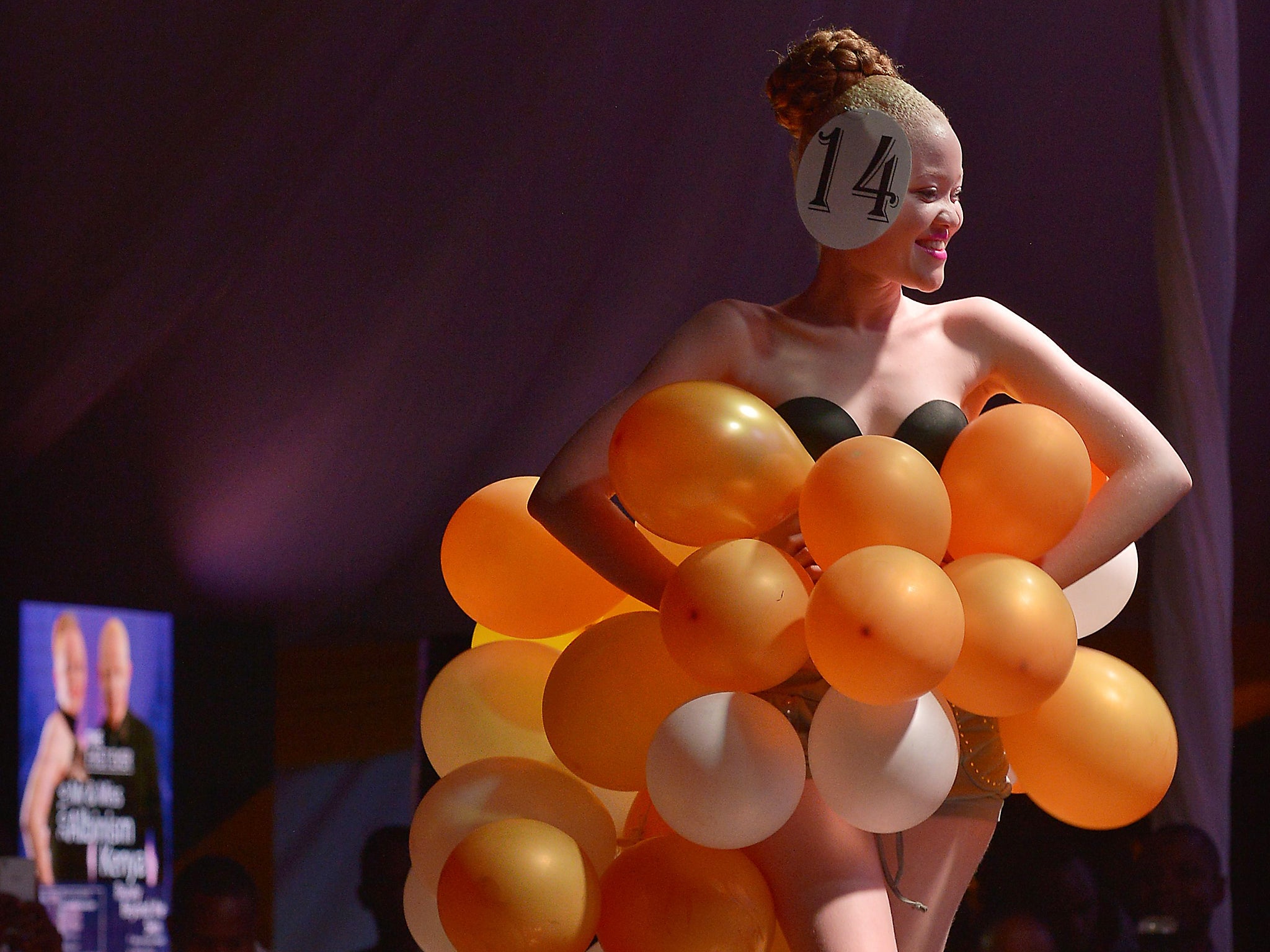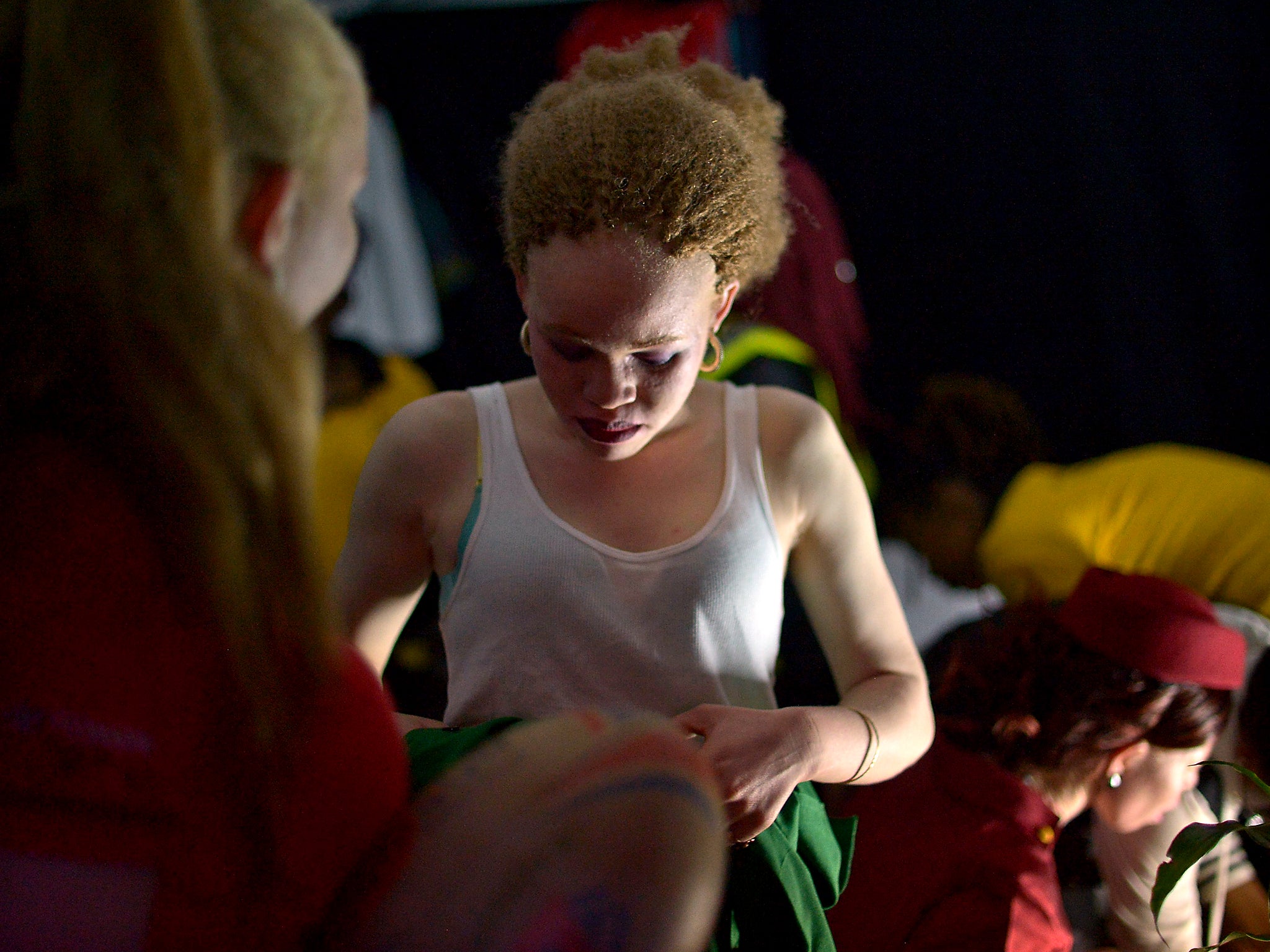World's first albino beauty contest held in Kenya to fight prejudice
Albino campaign group says contest is to help fight the persecution they face in East Africa
Your support helps us to tell the story
From reproductive rights to climate change to Big Tech, The Independent is on the ground when the story is developing. Whether it's investigating the financials of Elon Musk's pro-Trump PAC or producing our latest documentary, 'The A Word', which shines a light on the American women fighting for reproductive rights, we know how important it is to parse out the facts from the messaging.
At such a critical moment in US history, we need reporters on the ground. Your donation allows us to keep sending journalists to speak to both sides of the story.
The Independent is trusted by Americans across the entire political spectrum. And unlike many other quality news outlets, we choose not to lock Americans out of our reporting and analysis with paywalls. We believe quality journalism should be available to everyone, paid for by those who can afford it.
Your support makes all the difference.Kenya has hosted the world’s first albino beauty pageant to help combat the persecution they face in East Africa.
The contest called Beauty Beyond Skin was held in Nairobi and saw 10 women and 10 men with albinism – meaning they lack pigment in their skin, hair and eyes – modelling in front of a crowd of around 1,000 people including Deputy President William Ruto.
The contestants used the occasion to petition the government to give them greater protections from the prejudice they face.

Participants dressed up as army officers, waiters and police officers to show they were able to take part in every aspect of society.
In countries like Kenya, Tanzania, Burundi and Malawi albino people face persecution and ostracisation from communities who fear them.

Albinism is regarded as a curse in Kenya with all the contestants taking part saying they have been called "zeru" – meaning ghost in Swahili – or "pesa", meaning money in reference to the value placed on their body parts.
Criminal gangs target them in order to sell their body parts to witchdoctors due to superstitions that their body parts bring wealth, happiness and good luck.
One myth in particular is that their bones contain gold which can be extracted through drilling.
Senior police officers in Tanzanian city Dar es Salaam have estimated that a complete set of albino body parts – including all four limbs, genitals, ears, tongue and nose – can fetch up to $75,000 (£61,000) on the open market, according a report by the International Federation of the Red Cross.
Women are at an increased risk of sexual violence due to another belief that sex with an albino person can cure HIV/Aids.
According to an Amnesty International report earlier this year at least 69 crimes associated with albino people were recorded in Malawi alone in 2014.
In 2015, 35 albino people were evacuated from towns near the Kenya-Tanzania border after a spike in ritual killings which was allegedly linked to local politicians hoping to win election.
Issac Mwaura, Kenya’s first ever albino MP, said: “A time is coming when we will have people with albinism serving in the army and police force. We already have some in the National Youth Service, and this is a milestone in achieving inclusion despite the difference in skin colour.
“We have come to say that people with disability are beautiful people. We can have the names ‘beautiful’, ‘handsome’ and ‘albinism’ in one society.”
Subscribe to Independent Premium to bookmark this article
Want to bookmark your favourite articles and stories to read or reference later? Start your Independent Premium subscription today.

Join our commenting forum
Join thought-provoking conversations, follow other Independent readers and see their replies
Comments